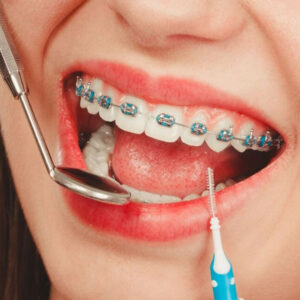What is Dysphagia and How Can It Be Treated?

The Basics of Dysphagia: What You Need to Know
Dysphagia, which is a difficulty swallowing, means that it takes a person more effort and time to move liquid or food from their mouth into their stomach. In some situations, dysphagia is also associated with pain. In severe cases, this condition makes swallowing impossible.
The fact is, dysphagia is a condition that may occur at any age; however, it’s most commonly seen in older adults. Keep in mind, the causes of swallowing issues vary, and the treatment required will depend on the cause of the problem.
Keep reading to learn more about dysphagia, as well as treatment options available today. Being informed is the best way to ensure you know what to do if you ever suffer from this condition.
Preventing Dysphagia
While there is no way for you to prevent swallowing difficulties altogether, you can reduce your risk of occasional problems by chewing food well and eating slowly. Also, early detection and the effective treatment of GERD can help to lower your risk of dysphagia.
Diagnosing Dysphagia
If you think you may suffer from dysphagia, then your doctor is probably going to do a physical exam. They may also use several tests to determine the underlying cause of your swallowing issues.
Some of the tests they may perform include an X-ray using barium, a dynamic swallowing study, imaging scans, an esophageal muscle test, a fiber-optic endoscopic swallowing evaluation, and a visual exam of your esophagus.

Home and Lifestyle Treatment Options for Dysphagia
If you are having issues swallowing, then you should make sure that you make an appointment with your doctor and that you follow their advice closely. You can also try a few things at home to make things a bit easier on you.
One is to change your eating habits. Try to eat smaller and more frequent meals. Also, cut all food into smaller pieces, and slow down your rate of eating.
You can also try eating foods with a different texture to see what is easier for you to handle. Thinner liquids, like juice and coffee, are an issue for some people. If this is the case, consider food thickeners like the ones created by John Holahan to make them easier to consume.
You should also make sure that you avoid any caffeine, tobacco, and alcohol. All these can make heartburn worse, which can increase symptoms of dysphagia.
Surgical Treatments for Dysphagia
In some cases, your doctor may recommend surgery to help alleviate your swallowing problems that are the result of vocal cord paralysis, bony outgrowths, blockages, throat narrowing, and other problems. Some of the most common surgical procedures that are done include laparoscopic Heller myotomy, esophageal dilation, or the placement of a stent.
Each of the above surgical treatments for dysphagia is effective, but the one that is right for you is going to depend on your needs and your doctor’s recommendations.
Dysphagia Relief is Possible
While dysphagia can cause a number of issues for people, there are treatment options available today. It’s a good idea for you to speak to your doctor if you suffer from this condition, as they will be able to recommend the best treatment option for you. Don’t suffer in silence, as there are ways to reduce your pain and suffering that’s caused by this condition.






